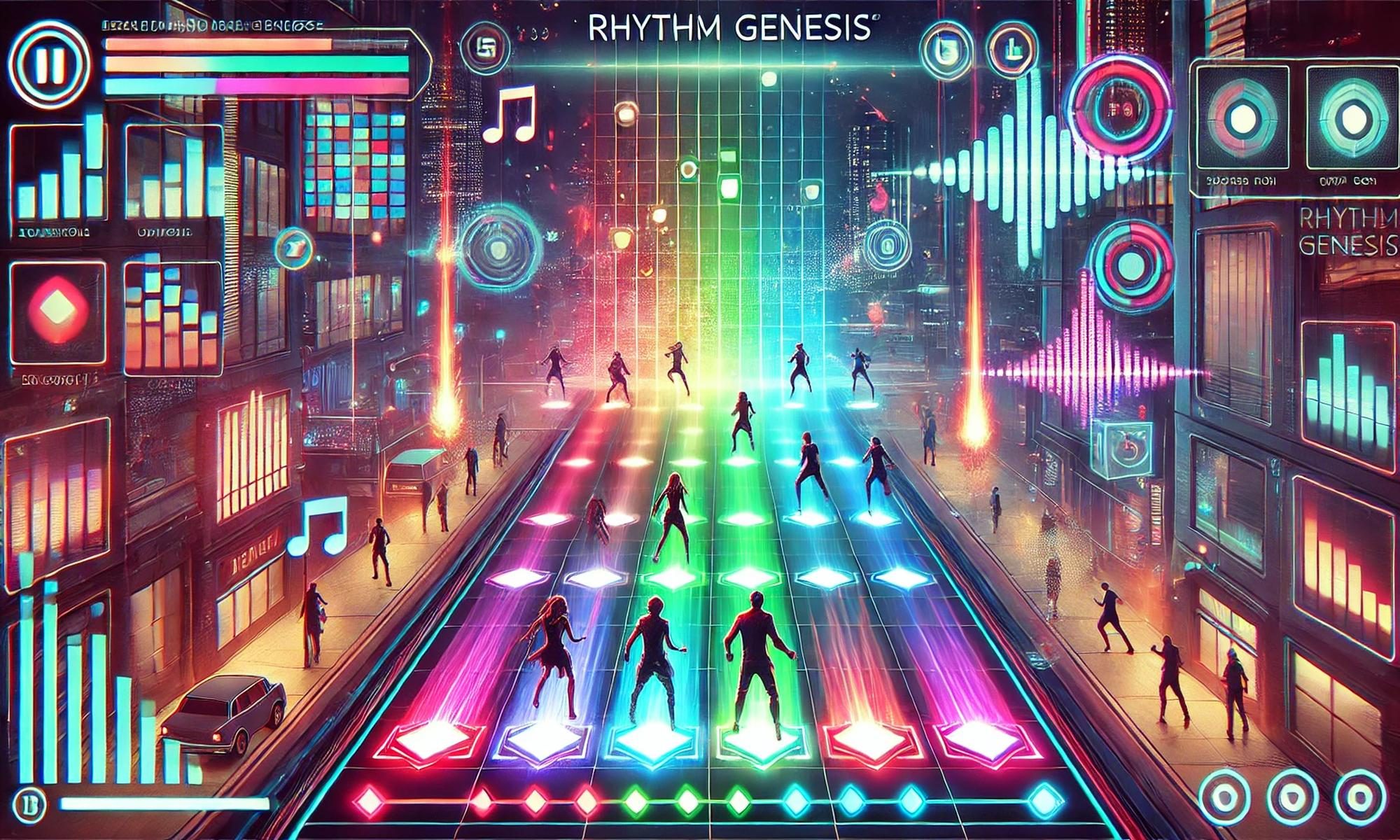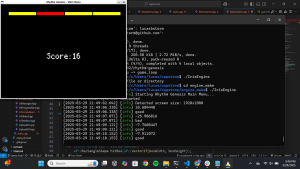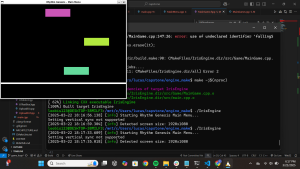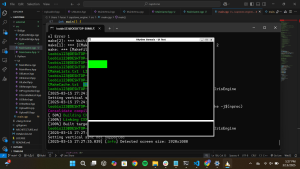This week, I continued to put finishing touches on our game and made some final design decisions. I did some debugging to clean up the game’s code as well as adding a color palette and correcting the code that fetches JSON files, ensuring that it fetches the file with the right name from the correct location in the user’s filesystem.
This coming week I’ll need to focus on making sure the game works as a unit – this’ll take lots of debugging and playtesting. I’ll also try to connect a midi keyboard to make the game a bit more engaging for the player. I’ll also need to focus on finishing up the final documents – the poster, video, and final report.



